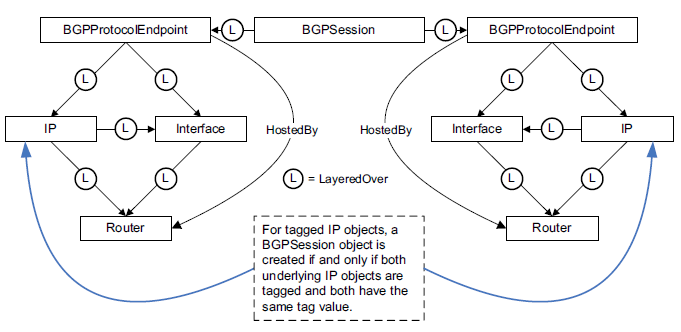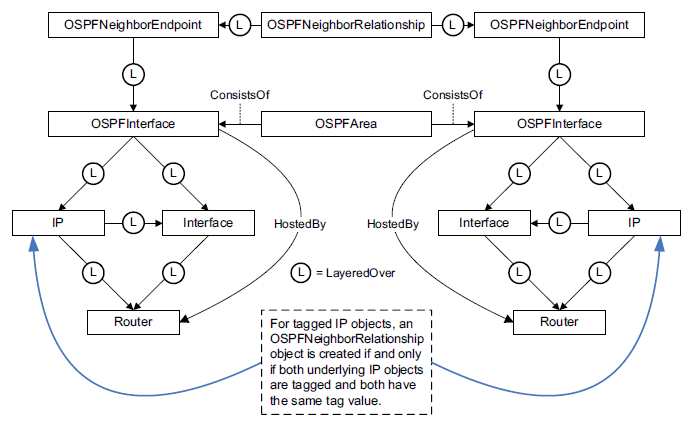The creation of BGP sessions and The creation of OSPF neighbor relationships provide insight into how Network Protocol Manager creates routing sessions between routing-protocol neighboring endpoints.


The creation of BGP sessions and The creation of OSPF neighbor relationships show that in an overlapping IP environment, where one or more discovered routing devices contain overlapping IP addresses, Network Protocol Manager observes the following rules to ensures that it creates the correct routing sessions in its modeled topology:
-
For a BGP endpoint layered over a tagged IP that has a tag value of xxx, Network Protocol Manager for BGP will create a BGP session to a neighboring BGP endpoint if and only if that endpoint is also layered over a tagged IP that has a tag value of xxx.
-
For an OSPF endpoint layered over a tagged IP that has a tag value of yyy, Network Protocol Manager for OSPF will create an OSPF neighbor relationship to a neighboring OSPF endpoint if and only if that endpoint is also layered over a tagged IP that has a tag value of yyy.
In addition, to observe the rule in the second bullet item, Network Protocol Manager for OSPF will create OSPF subareas for an OSPF area 0. The Network Protocol Manager for OSPF User Guide describes a situation in which Network Protocol Manager for OSPF creates five subareas for an OSPF area 0. The creation of OSPF neighbor relationships also helps explain OSPF subareas: An OSPF subarea consists of OSPF interfaces that are layered over tagged IPs that have the same tag value.
Network Protocol Manager creates a full link for an adjacency connection if both routing-protocol endpoints are in the managed topology. Network Protocol Manager creates a half link (a stub adjacency) for an adjacency connection if only one routing-protocol endpoint is in the managed topology.
For any device placed on the Pending Elements list during the discovery, Network Protocol Manager will attempt to discover that device during the next pending discovery. Pending discovery is described in Chapter 6, “Invoking Full or Pending Discovery.”